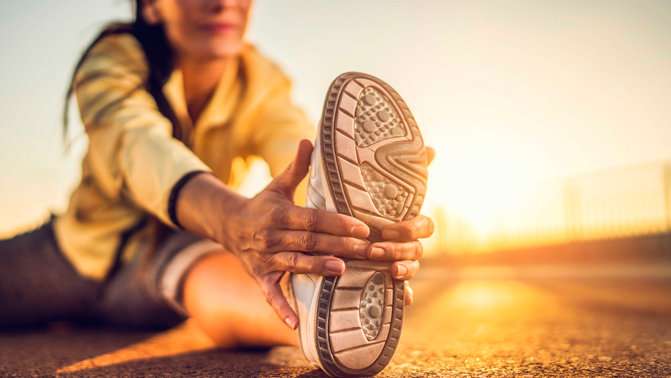Exercise resolution fizzling? These expert tips can help

Whether you're just starting a new exercise regime for 2018 or already tinkering with your plan, congratulations – you're among millions of Americans trying to sweat off the holiday sluggishness.
Embarking on a physical activity program is a good goal, health experts say, especially if you're doing it for the right reasons – to improve overall health and feel better. As part of such a goal, it's important to find a fitness plan that suits your needs.
1. Pace yourself
Consider exercising frequently but also "slow and easy" at first, said exercise physiologist Dr. Cris Slentz, an assistant professor in the Department of Medicine at Duke University Medical Center.
And, it's important to remember that it takes time.
"Don't expect too much too fast," he said.
Starting modestly with 15- to 20-minute sessions of physical activity gets the process going. Gradually, you can ramp up in intensity and duration.
Exercising every day or almost every day makes fitness part of a regular routine. The main question then becomes not "Do I exercise?" but "When do I exercise?" Slentz said.
2. Remember the big picture
Health benefits connected to exercise are numerous. Most research has focused on aerobic exercise, Slentz noted, which includes activities such as brisk walking, jogging, uphill walking, bicycling and swimming.
Scientific studies have shown only mild or modest weight loss achieved through exercise. Careful attention to diet is also necessary to lose weight, Slentz said.
But physical activity can improve heart, bone and vascular health. It has been shown to reduce the incidence of diabetes, reduce the risk of certain cancers; reduce stress; and improve brain health. Research has also shown a connection between exercise and reduced risk of premature death.
The National Institutes of Health Common Fund has launched a major consortium to study the molecular changes that occur during and after exercise. Multiple research institutions across the country are participating in the research over the next few years.
3. Spend carefully on exercise plans and gear
As you start slowly with exercise, remember to do the same with fitness spending. Physical activity doesn't have to be expensive.
It may be best to forgo buying a pricey piece of home exercise equipment that could soon be abandoned. Instead, consider joining an affordable gym that offers a variety of cardiovascular and weight machines.
Fitness centers often provide good deals in January and February. Shop around for the least expensive fees, but be wary of lengthy contracts. You don't want to pay long-term costs if you decide a gym is not right for you.
Or, if a gym is not your speed, you can start a plan all by yourself for free by walking. It's an easy way to start and convenient to work into your schedule. And, research has shown people stick to walking routines more than other forms of exercise.
"Walking is a great exercise," Slentz said.
No matter your fitness routine, it's tempting to buy new clothes and accessories as you get going. But that shopping may be unnecessary, and those dollars can add up. It is wise, though, to invest in a good pair of athletic shoes for safety and support.
If it's in your budget, you may want to hire a personal trainer, even if only for a few months when getting started, Slentz said. Some spending can be worthwhile if it helps you focus on your health.
4. Mix it up
Variety when exercising helps. Resistance training using weights or resistance bands improves muscle strength and contributes to lean body mass, which are important as people grow older.
Another exercise to consider is high-intensity interval training or modified interval training, which increases cardiovascular fitness and can be quite individualized.
It involves short segments of intense cardiovascular exercise (like walking briskly up a steep grade so it is intense) followed by moderate intensity exercise to recover; and then repeating this cycle five to 10 times. The short bursts – sometimes as short as a minute – doesn't make the intense effort feel difficult but still provides a significant amount of cardiovascular effort over time.
5. Don't go it alone
Group exercise can help with motivation. Consider an exercise buddy, or trying fitness classes at the gym or a community center. You can even take part in free research exercise studies at a local university.
You can also team up to make a social impact while exercising.
Community walks or runs such as American Heart Association Heart Walks and other charity fundraisers provide opportunities to exercise with others while making a potentially tax-deductible donation. Likewise, group hikes or bike rides turn fitness into a social outing.
Many charity walks and runs are 5Ks. That's a healthy distance and useful for gauging physical fitness year to year, said Slentz.
"They're very social," he added. "They're really a lot of fun."




















